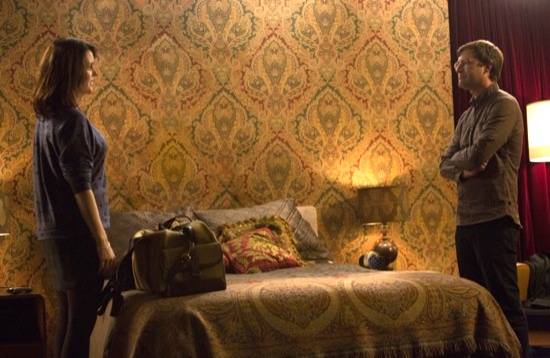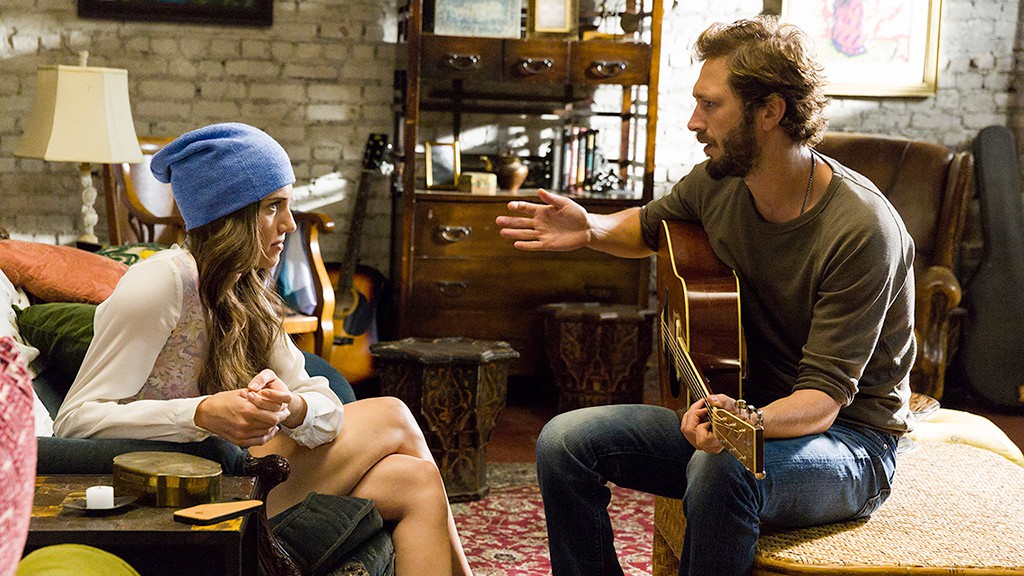

It’s a Fifty Shades world this week, and we just live in it. Not sure how close attention you’ve been paying to the ‘debate’ surrounding the film, but it’s a fascinating one, touching as it does on a number of our current hot potatoes, most notably sex and gender. Everyone seems to agree that the astronomical number of books (and tickets) sold indicates something larger going on, though no one seems to agree on what that is.
Some say the success of the franchise reveals a deep faultline in 21st century bedrooms between Should and Is, between what’s acceptable to want and what is actually wanted, the ideal of egalitarian tenderness vs the reality of what gets certain motors running, etc. Others say we’re witnessing a new vanguard of female agency and sexual assertiveness. Others still claim the exact opposite.
Truth be told, I’m not really up for diving into the gender issues anymore than we already have. Just feels too fraught. The discussion around sex itself, though, seems pretty ripe. Which is why I found Emma Green’s essay on the phenomenon for The Atlantic so engrossing, “Consent Isn’t Enough in Fifty Shades of Gray“. (Warning: it gets into the nitty-gritty). She doesn’t shy away from the increasingly troubling presumptions that have come to shape our national discourse on sex. In fact, one of her doorways into the subject is the “interesting tension right now between the mainstreaming of S&M that Fifty Shades represents and also the mainstream horror at rape culture”. Talk about a difficult line to tread!
As she notes, implicit in all our discussions of sex these days is the idea that our libidinal life is 1.) by definition good (or at least morally neutral) and 2.) under our control. This is what we often refer to as “inflated anthropology”, and it tends to prevent the discussion from going much of anywhere. I’ll let her spell it out though, ht BJ:
By and large, the conversation about sexuality in the liberal public sphere has become a conversation about individual rights and freedoms: the right not to be compelled to have sex without giving consent, the freedom to have sex in whatever way and with whichever partner you choose. There are many benefits to a rights-and-freedoms approach to sexuality, but there are also drawbacks.
In a 2000 paper, the legal scholar Robin West wrote that “the ethic of consent, applied evenhandedly, may indeed increase the amount of happiness in the world, but women will not be the beneficiaries.”
The rather inescapable fact is that much of the misery women endure is fully “consensual.” … Put affirmatively, the conditions which create our misery—unwanted pregnancies, violent and abusive marriages, sexual harassment on the job—are often traceable to acts of consent. Women—somewhat uniquely—consent to their misery. An ethical standard which ties value to the act of consent by presumptively assuming that people consent to their circumstances so as to bring about their own happiness—and by so doing thereby create value—leaves these miserable consensual relationships beyond criticism.
It’s one thing to ensure that all sex is legal, and that everyone is free to have sex based on their rights as individuals. It’s another to have a culture that encourages people, and particularly young adults, to seek out sexual encounters that are emotionally constructive and based on affirmative values of mutual respect, dignity, and care.

In other words, the backlash to conventional views of sex have led us to exile morality from the bedroom, full stop–even as we are confronted with reminder after reminder that while “all things may be permissible, not all things are advisable”. Meaning, an absence of law does not seem to have birthed a predominance of ‘grace’, or happiness, or satisfaction for that matter. Some would venture that sex is a more anguished arena today than it ever has been. Are we so afraid of sounding prudish or puritanical that we have forgotten how, er, potent sex actually can be?
I remember, for instance, when I worked as a youth minister to boarding schools, young men would routinely crash their school servers with the massive amounts of pornography they were downloading. Yet the administration would seldom if ever address the problem (in public or private), other than with a polite ‘please don’t hog the bandwidth’ plea. They were either unwilling to wade into such awkward/freighted territory or lacked the vocabulary to do so. I dare say those boys–and girls–paid the price.
In his wonderful little book How to Think More About Sex (we’ve put this on the site before), popular atheist/thinking Alain de Botton, puts it this way :
It is perhaps only people who haven’t felt the full power of sex over their logical selves who can remain uncensorious and liberally “modern” on the subject. Philosophies of sexual liberation appeal mostly to people who don’t have anything too destructive or weird that that they wish to do once they have been liberated…
Only religions still take sex very seriously, in the sense of appreciating the power of sex to turn us away from our sincerely-held priorities. Only religions see sex as potentially dangerous and something we need to be guarded against. We may not sympathize with what religions would wish us to focus on instead of sex, we may not like the way they censor, but they do recognize that sexual images can indeed overwhelm our higher rational faculties with depressing ease…
It’s a drum worth beating over and over: A “low anthropology” suggests that we are often drawn to things that are not in our best interest, and that sexual appetite dwarfs willpower in pretty much every case. These aren’t fun insights, but if personal experience is any indication, they do seem to be borne out by life.
Clearly the answer isn’t an overcorrection in the censorious direction–Lord knows that’s done enough harm. But an acknowledgment, however slight, of human fallibility in the face of the almighty coitus might not be the worst thing in the world. Since fallibility extends across gender and socioeconomic divides, a renewed emphasis on weakness might even prove unitive. Who knows, we may find that, instead of self-reproach or priggishness, a more sober understanding of our nature issues in patience and compassion for those who experience a painful discrepancy between desire and conviction, Should and Is. Human beings, in other words.

COMMENTS
2 responses to “Fifty Shades of Something”
Leave a Reply













It’s funny, as you point out, this past week’s episode of “Togetherness” on HBO offers a far more provocative, insightful, realistic (and not for the faint of heart) take on this subject than this $”mid-nine-figures”$ film (getting hammered by the critics btw) could ever hope to.
This is one of the best discussions of sexual behavior and our mixed up world I have read. I will check out the Atlantic article as well. It reminds me of something Rowan Williams wrote to the effect that one never knows what one is consenting to, whether it be what a person actually says or some strange fantasy in which you become an unwilling or unknowing participant. Thank you.